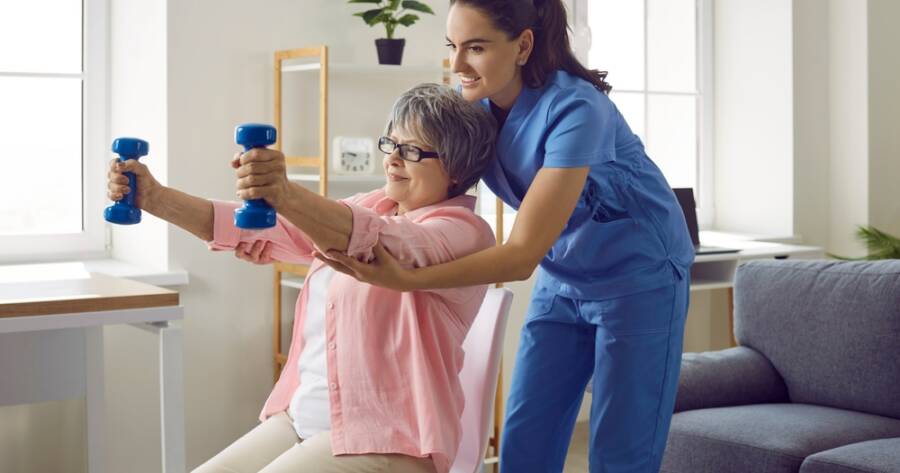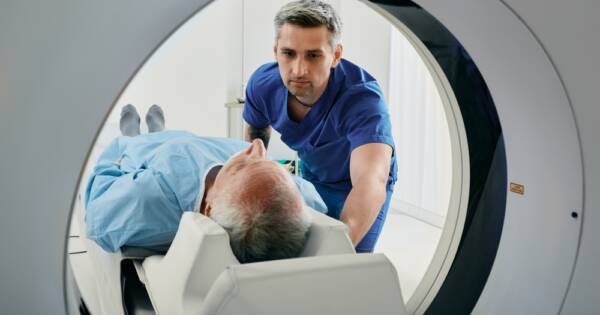The demand for physical therapy assistants (PTAs) is growing as more people seek rehabilitation services for injuries, mobility issues, and chronic conditions. A physical therapy assistant degree provides the necessary training to work under the supervision of licensed physical therapists, helping patients regain movement and function. While traditional PTA programs require in-person training, many institutions now offer online PTA degree options, making it easier for students to balance their education with personal and work commitments.
How Online PTA Programs Work
Unlike fully online degrees, physical therapy assistant programs require hands-on clinical training. Most hybrid PTA programs combine:
- Online coursework for theoretical learning.
- On-campus lab sessions for practical training.
- Clinical internships at approved healthcare facilities.
Online courses cover subjects like anatomy, kinesiology, medical terminology, patient care techniques, and rehabilitation exercises. These programs provide flexibility while ensuring students receive the necessary hands-on experience required for certification.
Benefits of an Online PTA Degree
1. Flexibility and Convenience
Online programs allow students to complete coursework from home, making them ideal for working professionals, parents, or those in remote areas.
2. Cost Savings
Many online PTA programs are more affordable than traditional on-campus degrees. Students save on commuting, housing, and campus fees while still receiving quality education.
3. Access to Accredited Programs
Several universities and community colleges offer accredited hybrid PTA programs, ensuring that students meet licensing and certification requirements upon graduation.
4. Hands-On Learning in Local Settings
Students complete clinical rotations at nearby healthcare facilities, gaining real-world experience in patient care, therapy exercises, and rehabilitation techniques.
Admission Requirements for Online PTA Programs
While requirements vary, most physical therapy assistant programs require:
- A high school diploma or GED.
- Completion of prerequisite courses in biology, anatomy, and physiology.
- A minimum GPA (usually 2.5 or higher).
- CPR certification and background checks for clinical training eligibility.
Some programs may also require letters of recommendation, personal statements, or interviews as part of the application process.
Career Opportunities for PTA Graduates
Graduates of accredited PTA programs can work in various healthcare settings, including:
- Hospitals – Assisting physical therapists with patient mobility and rehabilitation.
- Outpatient Clinics – Helping individuals recover from sports injuries or surgeries.
- Nursing Homes – Supporting elderly patients in improving movement and reducing pain.
- Rehabilitation Centers – Working with patients recovering from strokes, accidents, or disabilities.
- Home Healthcare Services – Providing therapy sessions in patients’ homes.
According to the U.S. Bureau of Labor Statistics, the demand for PTAs is projected to grow by 24% through 2030, making it a promising career choice.
Continuing Education and Advancement Opportunities
After earning a physical therapy assistant degree, PTAs have opportunities for career growth and specialization. Many choose to pursue certifications in areas such as orthopedics, neurology, geriatrics, or sports rehabilitation, which can lead to higher salaries and expanded job roles. Additionally, some PTAs continue their education to become licensed physical therapists (PTs) by enrolling in bridge programs that transition them from an associate degree to a Doctor of Physical Therapy (DPT). Continuing education courses, workshops, and professional memberships in organizations like the American Physical Therapy Association (APTA) can help PTAs stay updated on new treatment techniques and advancements in rehabilitation therapy, further enhancing their careers.
Is an Online PTA Degree Right for You?
An online physical therapy assistant degree offers a flexible and cost-effective path into a rewarding healthcare career. While these programs require in-person clinical training, the ability to complete coursework online makes them ideal for students seeking work-life balance. By choosing an accredited PTA program and gaining hands-on experience, graduates can pursue exciting career opportunities in physical therapy and rehabilitation.





